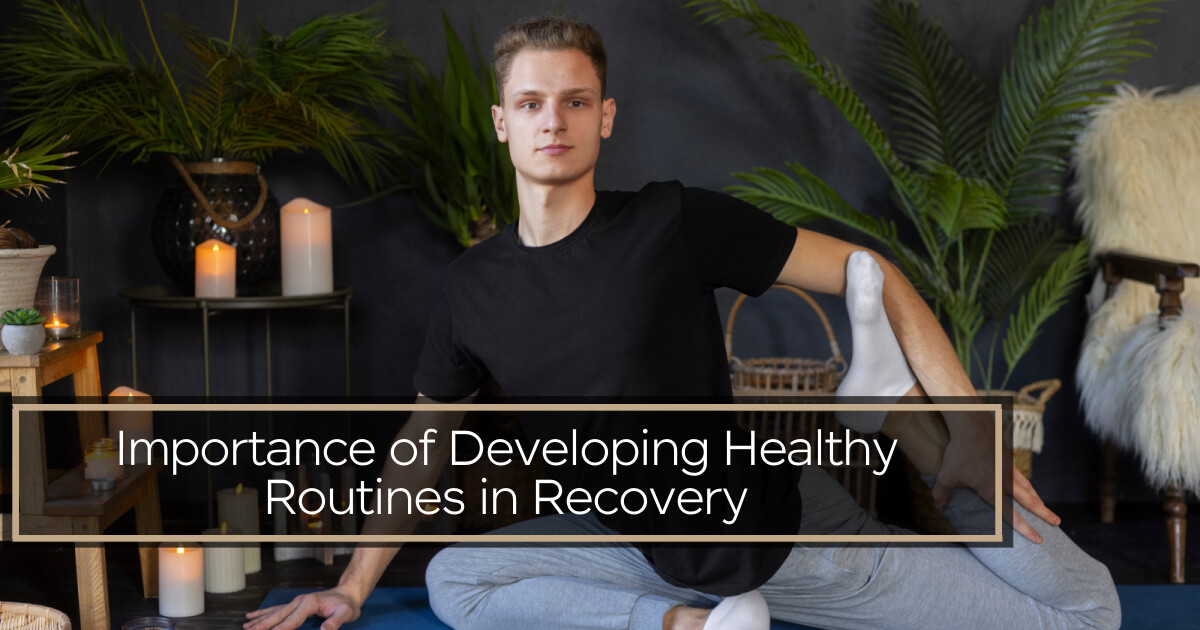Life after addiction recovery is not easy, but it typically benefits from order. A routine brings shape to the day, reducing stress and cutting down on idle time that can lead to cravings. Small daily choices turn into habits that support long-term sobriety and help prevent relapse. A steady rhythm shifts focus from past behaviors to much healthier patterns. Recovery from addictions becomes much more manageable when days follow a simple routine… Each and every healthy decision that’s repeated over time builds momentum in maintaining sobriety. Eventually, the momentum supports real change. Relapse prevention often starts long before temptation even appears during your recovery journey.
Why Healthy Routines Support Recovery
Addiction often pulls life into chaos, but a healthy routine can help rebuild from the damage. Structure creates stability that makes sobriety feel possible. Following a consistent plan gives the brain and body something to rely on. A strong daily rhythm plays a key role in addiction recovery and supports relapse prevention by reducing stress. Substance abuse and recovery usually go hand in hand with emotional difficulties. Following a routine may help manage these difficulties and sets the stage for personal growth by offering simple wins throughout the day. Building a sense of progress can make it easier to stay committed to a sober lifestyle.
Simple Habits to Stay on Track
A strong start can often shape the rest of the day when in recovery from addiction. A healthy morning routine might include quiet reflection, light movement, or a balanced breakfast. Sleep nearly always improves when supported by a healthy bedtime routine. Nutrition, exercise, and regular rest may sound boring, but they give the body what it needs to heal. A healthy exercise routine can also be counted on to keep stress levels down and improve mood. Small steps build a healthy everyday routine that keeps recovery from addiction moving forward. Daily habits can easily become building blocks in addiction recovery.
Building Better Coping Mechanisms Daily
Stress, boredom, and emotional triggers can lead to relapse if left unchecked and a healthy routine can help limit the chance of relapse. Time that’s set aside for journaling, therapy, or relapse prevention group activities can build a stronger response to daily challenges. An effective relapse prevention plan will include these types of practices. Learning how to prevent relapse starts with recognizing what makes it likely. This kind of self-awareness takes practice. Healthy routines support this practice and make relapse prevention strategies a part of everyday life. There is nothing fancy about it. Just consistent effort, one day at a time.
How Structure Prevents Relapse Risk
Unstructured time leaves too much room for temptation. A full, and well-planned day lowers the risk of relapse by keeping the mind and body engaged. Recovery activities, support meetings, and rest periods all serve a purpose in relapse prevention. Sticking to a routine builds awareness of triggers and gives people time to act before problems grow. A sample relapse prevention plan includes structure for this very reason. Predictable days help make sobriety feel much more sustainable. In other words, relapse has fewer chances to sneak into your life during your recovery from addiction when following a routine. Each portion of the day has a job to do. Even something as simple as a meal or a walk can help someone stay grounded and maintain sobriety.
Tips for Creating a Routine Plan
Start by choosing a few simple actions to repeat each day. A healthy morning routine, regular meals, a healthy exercise routine, and rest at night all form the basis of a good plan. Make time for recovery activities, especially ones that support mental health. A relapse prevention plan should feel personal and flexible but still consistent. Consider adding reminders that reflect the importance of keeping recovery a priority when returning to work. You can even use structure as a support system, and let the routine do some of the heavy lifting. A healthy routine makes it easier to stay sober, even when life becomes difficult during addiction recovery.








